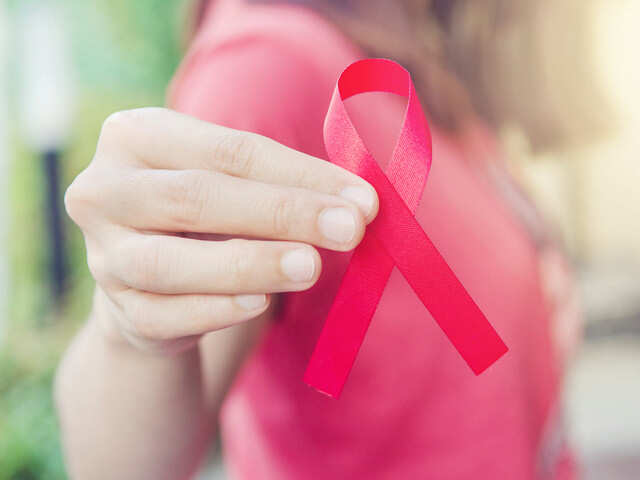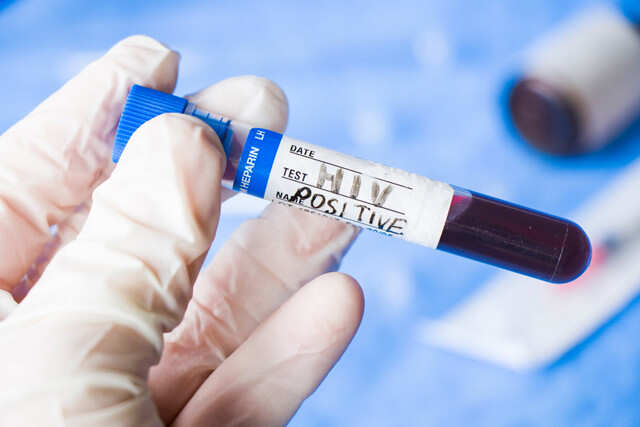
For individuals living with HIV, maintaining overall health is challenging, involving several important factors. Keeping up with their hospital visits, medical schedules, having a healthy diet, and engaging in regular physical activity are some essential steps. However, experts feel that taking care of one's entire body also includes addressing gynecological and reproductive health needs. Gynecologic care entails screening for and treating health issues related to sexual and reproductive organs.
“Certain gynecological conditions can be more common, severe, or challenging to treat in individuals living with HIV compared to those who are not. If left untreated, some gynecological infections can progress to more serious conditions such as pelvic inflammatory disease (PID) or cervical cancer. Therefore, seeking timely and appropriate gynecological care is crucial for the overall well-being of people living with HIV,” explains Dr Dhivya R, Consultant, Obstetrics & Gynaecology, Kauvery Hospital (Electronic City) Bengaluru, sharing the health issues women with HIV needs to focus on:

Menstrual Change
Many people living with HIV experience menstrual changes. These changes are less common if you have a high CD4 count and are taking HIV drugs but are more common if you have a low CD4 count or high viral load. These changes mainly occur due to alterations in your immune system and can affect the production and regulation of various hormones in your body.
Menopause
Research indicates that women living with HIV may undergo menopause at an earlier age compared to those who are HIV-negative. Several factors contribute to this, including anemia, reduced hormone production, illness, weight loss, the effects of HIV drugs, smoking, and drug use. Therefore, it is crucial for individuals with a vagina and reproductive organs to prioritize gynecological care as a routine part of their healthcare checkups, seeking support from healthcare providers.

The Mandatory Screenings
· A comprehensive gynecological examination, including a Pap test (recommended for individuals aged 21 years and above) and a pelvic exam, is conducted when individuals are initially diagnosed with HIV. Another examination is recommended 12 months later.
· If abnormal cells are detected, further procedures such as colposcopy and biopsy may be advised.
· Pregnant women living with HIV should undergo cervical screening when they first seek prenatal care.
· Individuals born with HIV should have a Pap test done before the age of 21 if they become sexually active.
· Testing for gonorrhea and chlamydia is important during the first gynecological visit. It is recommended to repeat these tests if one engages in sexual activity with a new partner or has unprotected sex.
· When you reach a certain age, typically around 40 or 50, depending on the country where you live, breast cancer screening with a mammogram is recommended.

Preconception Counselling
It is important for women living with HIV, especially as the majority of them are of reproductive age and sexually active. With the advancements in highly active antiretroviral therapy (HAART), women with HIV can lead longer and healthier lives, and many desire to have their own biological children. By effectively suppressing the viral load, HAART significantly reduces the risk of mother-to-child transmission. To ensure positive outcomes and minimise risks, healthcare providers should encourage women to plan their pregnancies, use effective contraception until they are ready to conceive, and take folic acid supplements to reduce the risk of certain behaviors such as smoking and substance abuse. It is important to counsel women about the risks of transmitting the infection through unprotected intercourse with an uninfected male. In some cases, intravaginal insemination may be considered as a viable option to reduce the risk of transmission.
What The Expert Says?
The number of women living with HIV is increasing, and it is important to get tested and be aware of their risk of acquiring the virus. If one tests positive, there are steps they can take to maintain their health and prevent transmission to others, including during pregnancy. While there is currently no cure for HIV, women are living longer and healthier lives due to effective care and treatments. By accessing quality healthcare and treatment as early as possible, one can significantly enhance their chances of living a longer and healthier life.
Also Read: 5 Ways In Which Menopause Affects Women In The Next Chapter Of Their Lives
“Certain gynecological conditions can be more common, severe, or challenging to treat in individuals living with HIV compared to those who are not. If left untreated, some gynecological infections can progress to more serious conditions such as pelvic inflammatory disease (PID) or cervical cancer. Therefore, seeking timely and appropriate gynecological care is crucial for the overall well-being of people living with HIV,” explains Dr Dhivya R, Consultant, Obstetrics & Gynaecology, Kauvery Hospital (Electronic City) Bengaluru, sharing the health issues women with HIV needs to focus on:

Menstrual Change
Many people living with HIV experience menstrual changes. These changes are less common if you have a high CD4 count and are taking HIV drugs but are more common if you have a low CD4 count or high viral load. These changes mainly occur due to alterations in your immune system and can affect the production and regulation of various hormones in your body.
Menopause
Research indicates that women living with HIV may undergo menopause at an earlier age compared to those who are HIV-negative. Several factors contribute to this, including anemia, reduced hormone production, illness, weight loss, the effects of HIV drugs, smoking, and drug use. Therefore, it is crucial for individuals with a vagina and reproductive organs to prioritize gynecological care as a routine part of their healthcare checkups, seeking support from healthcare providers.

The Mandatory Screenings
· A comprehensive gynecological examination, including a Pap test (recommended for individuals aged 21 years and above) and a pelvic exam, is conducted when individuals are initially diagnosed with HIV. Another examination is recommended 12 months later.
· If abnormal cells are detected, further procedures such as colposcopy and biopsy may be advised.
· Pregnant women living with HIV should undergo cervical screening when they first seek prenatal care.
· Individuals born with HIV should have a Pap test done before the age of 21 if they become sexually active.
· Testing for gonorrhea and chlamydia is important during the first gynecological visit. It is recommended to repeat these tests if one engages in sexual activity with a new partner or has unprotected sex.
· When you reach a certain age, typically around 40 or 50, depending on the country where you live, breast cancer screening with a mammogram is recommended.

Preconception Counselling
It is important for women living with HIV, especially as the majority of them are of reproductive age and sexually active. With the advancements in highly active antiretroviral therapy (HAART), women with HIV can lead longer and healthier lives, and many desire to have their own biological children. By effectively suppressing the viral load, HAART significantly reduces the risk of mother-to-child transmission. To ensure positive outcomes and minimise risks, healthcare providers should encourage women to plan their pregnancies, use effective contraception until they are ready to conceive, and take folic acid supplements to reduce the risk of certain behaviors such as smoking and substance abuse. It is important to counsel women about the risks of transmitting the infection through unprotected intercourse with an uninfected male. In some cases, intravaginal insemination may be considered as a viable option to reduce the risk of transmission.
What The Expert Says?
The number of women living with HIV is increasing, and it is important to get tested and be aware of their risk of acquiring the virus. If one tests positive, there are steps they can take to maintain their health and prevent transmission to others, including during pregnancy. While there is currently no cure for HIV, women are living longer and healthier lives due to effective care and treatments. By accessing quality healthcare and treatment as early as possible, one can significantly enhance their chances of living a longer and healthier life.
Also Read: 5 Ways In Which Menopause Affects Women In The Next Chapter Of Their Lives
Next Story